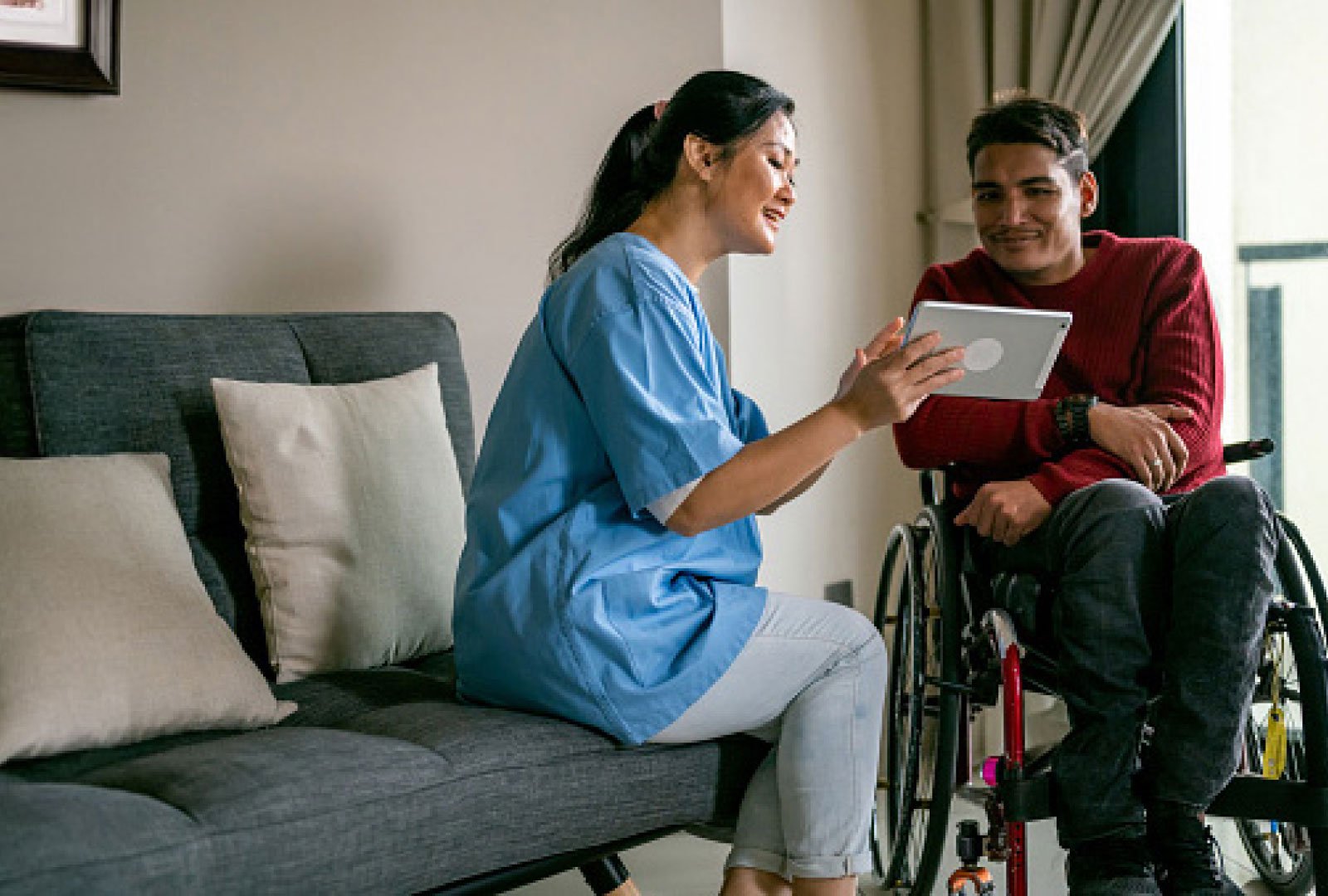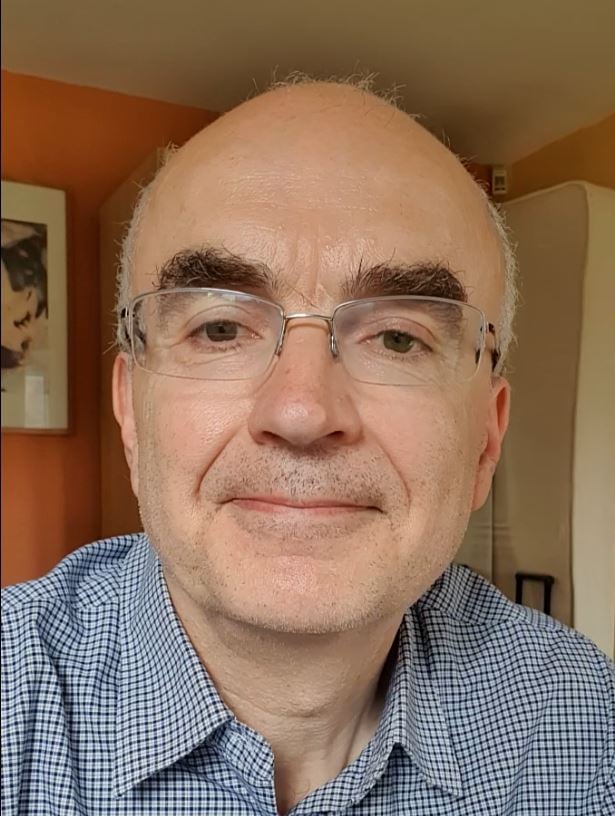Ivanti Neurons for MDM
Effectively manage and secure all endpoints, so you can protect data everywhere work happens.

When it comes to providing care and support for individuals living with Motor Neurone Disease (MND), technological tools have ushered in fresh hope and functionality.
An example is how Ivanti Neurons for MDM has created a positive impact on personal communication for those affected by MND, a progressive and ultimately fatal illness that severely impairs muscular function and speech.
Specifically, Neurons for MDM is helping the dedicated team at the United Kingdom’s Motor Neurone Disease Association enable individuals with MND to communicate their needs and maintain autonomy in their lives.
MND, also known as amyotrophic lateral sclerosis (ALS) or Lou Gehrig's disease, is an illness that leads to the gradual weakening and wasting away of muscles.
Richard Cave, SLT Project Manager at the Motor Neurone Disease Association and a qualified speech and language therapist, explains: "MND is a terrible disease. It is progressive and ultimately fatal. There is no cure. MND causes progressive muscular weakness, resulting in loss of function of the limbs, the trunk, the neck, pretty much everywhere. And the life expectancy is commonly two to three years."
MND causes loss of mobility in limbs, trunk and neck, severely impacting the physical capabilities of those affected. That includes their ability to communicate, Richard says. "More than 80% of people living with MND will become unable to communicate their daily needs by talking — and in time almost all of them will be unable to speak at all."

This could be considered one of the most cruel and devastating aspects of the disease, since it affects social interaction, personal care and employment, while leaving cognitive abilities intact. For most, the mind remains sharp but is trapped in a body that can no longer express thoughts, desires or needs.
“As a speech and language therapist, I work with people living with MND every single day,” Richard says. “And you know, we have to find ways to help people to live their lives and just be themselves for as long as they can.”
“One of the big challenges we have,” Richard says, “is accessing communication devices for people who have lost the power of speech or are losing it.”
While he praises the efforts of Britain’s National Health Service in helping patients with advanced MND, “there’s a bit of a black hole when people have lost speech or are difficult to understand but still have some movement in their hands,” he says, as they may not qualify for funding for a communication device and usually need to wait many weeks or months to apply.
“And the problem is,” he points out, “we don't have that much time. We have to act at the speed of MND, and faster. And so, one thing we've been doing more and more is to provide communication equipment, literally to give these people a voice to communicate their needs without having to have other people to speak on their behalf.”
In search of solutions to enable this, Richard and the MND Association team decided to use Ivanti Neurons for MDM, “because we've looked at all sorts,” he says. “It just so happens that one of the teams at the Association was using MDM in a very different way. And we tried it and spent a while to see how we could push apps and provide equipment from a remote location in a way that was the least stressful to the people with MND and their families. And Neurons for MDM helps us do exactly that.”
In practice, it meant being able to push communication apps to a person's own iPad or iPhone or load them into an MND Association iPad they can use, then allow the MND Association to manage them all remotely.
"There are lots of people living with MND who are not technically savvy,” he says. “They don't ‘get’ this stuff. And actually, we don't want them to have to get it; what we want them to do is be able to communicate, to take all the stress out of it for them but be very, very flexible. So that means we now have the power to actually help many, many hundreds of people. I think we're looking at currently serving about 450 people through the Neurons for MDM platform.”

By giving them a device where there’s no need for in-person support (though over-the-phone support is available if needed), Richard says “we’re literally giving them the power of their own voice, allowing them to have a bit of their life back.”
One of the most heartening features of the implementation is how it supports "voice banking” apps that let people record and preserve their natural voice for use in a personalised synthetic voice. It’s more than a technical achievement, Richard Cave notes; it’s deeply personal, as those with MND can communicate in a way with a device using a voice that reflects their true selves, preserving a sense of identity even as the disease progresses.
One example of that is Rob Burrow CBE, a famous rugby player with "a strong Yorkshire accent, and proud of his roots” Richard says. “His accent is part of him. And a Scottish friend asked him, would you like a voice bank that sounds like you're from Scotland? And he was not very complimentary about that suggestion!”
By banking his natural voice, accent and all, Rob Burrow is “communicating with his children using a voice that sounds like their dad,” Richard says. “This is a beautiful example of how technology can preserve something really important. And with Neurons for MDM, we can push equipment, tools and apps out to people to be able to do just that, in time for them to be able to do it before they lose their natural voice, quickly and easily.”
On the other side of the equation, “we have to be super careful with the money that we use,” Richard says, since the MND Association is all funded through donations, and every expenditure must be carefully considered. “Neurons for MDM helps us to be very efficient with what we do, and that means we can help quicker with the resources we have.”
Prior to using Neurons for MDM, people would be given grants to help with obtaining tools, but Richard explains that “it was only ever going to benefit them for a certain period of time, and then it would likely be of no benefit to them or anyone else.”
With Neurons for MDM, the MND Association can now recycle devices and apps, and people can receive them more rapidly. “We are the proud owner of around, well, more than 300 iPads,” he says, “and we support many hundreds of software apps. And that means that we can recycle them all. And many of these apps have been used, more than 10 times. So rather than give a grant, we do it this way. And because it's Ivanti, it’s Neurons for MDM, we can do it in a safe and data-protected way.”
Even though Richard attests to his own “lack of skills” in setting up the solution, “the long and the short of it is that we have this incredible system...now there's one person managing it themselves and they're looking after this huge community of people.”
As he sees it, Neurons for MDM offers “powerful” benefits for non-profit organisations. “Not only does it optimise funds, but it also optimises service,” he says. “It helps people to give the best of what we can through technology.”
One thing he would like to pass along to the Ivanti team? “I’d love to let the engineers know that their work is far more than technical,” Richard notes. “It’s about helping people with MND do important things, like telling their children they love them.
“If anyone would like to find out more about MND and how they can support the MND Association, please visit our website, MND Association | Fighting Motor Neurone disease.”
Note: A customer’s results are specific to its total environment/experience, of which Ivanti is a part. Individual results may vary based on each customer’s unique environment.